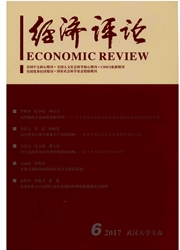

 中文摘要:
中文摘要:
本文在对劳动力从欠发达地区向发达地区流动对地区收入差距的作用机制进行理论推导的基础上,结合中国经验数据进行了实证研究。结论表明:在理论层面无论是将外流劳动力归入欠发达地区还是发达地区进行考察,单纯的劳动力流动都未熨平收入差距,反倒拉大了差距。这与国内现有研究以及西方传统经济理论形成了典型的“悖论”。本文认为发达地区在劳动力流入后的技术扩张、欠发达地区在劳动力外流后的技术存量因子、外流劳动力从发达地区向欠发达地区输回的劳动报酬比等因素构成收入差距扩大的主要影响变量。实证研究也印证了劳动力流动拉大收入差距的理论推导,并发现“库兹涅茨”效应目前在我国并不显著。因此,需要形成以就业为导向的宏观政策,尤其偏向弱势群体和低收入阶层,加大对农村与欠发达地区的财政和金融支持力度,推进公共福利均等化等多重渠道缩小收入差距。
 英文摘要:
英文摘要:
Based on the theoretical derivation for mechanism of the income gap caused by labor mobility from less developed areas to developed areas, this paper does an empirical study combined with Chinese experience data and it shows at the theoretical level that labor movement widens the regional gap regardless of whether labors are classified as less developed or developed areas,which forms a typical "paradox" with western tradition economic theory and domestic research. This paper views that the technology expansion factor of the developed areas after the inflow of labor force ,the technology stock of factor in the undeveloped regions after the outflow of labor, and the rate of labor return because of the migration constitute the main impact variables of the widening gap. Empirical studies have confirmed that labor migration enlarges the gap of income and the Kuznets effect in China is still not significant. Therefore,in order to narrow the gap,we may develop the employment - oriented macroeconomic policies, especially taking into account the vulnerable and low - income group,increase the fiscal and financial support for underdeveloped areas and promote the public welfare.
 同期刊论文项目
同期刊论文项目
 同项目期刊论文
同项目期刊论文
 期刊信息
期刊信息
